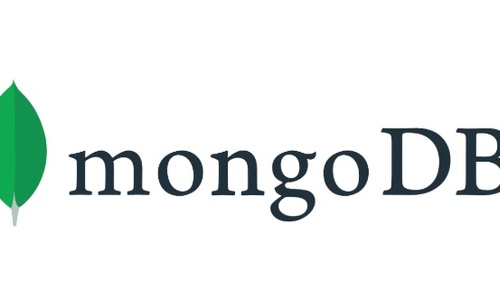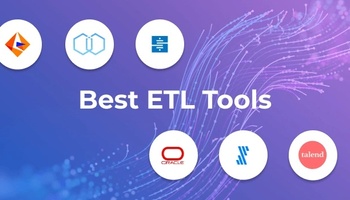The faster you can extract, transform, and load data from MongoDB, the better it is for your business processes and business intelligence systems. The problem is, most ETL solutions struggle to manage MongoDB’s dynamic schemas, NoSQL support, and JSON data types.
That’s not the case with Integrate.io – which was optimized for easy, no-fuss MongoDB integrations with ease: no custom code, no delays, no confusion.
Anyone in your organization – regardless of their tech experience – can use Integrate.io to set up powerful ETL workflows that push and transform MongoDB data into the most popular data warehouses for accurate, up-to-date business intelligence.
What’s MongoDB?
MongoDB is the most popular, open-source NoSQL database for managing and storing any type of operational data – regardless of data size, quality, and format. When it comes to organizing massive amounts of unstructured and structured data fast, MongoDB excels where relational databases can’t keep up the pace.
Celebrated for its flexibility, JSON file compatibility, and use of dynamic schemas, MongoDB facilitates the management of data for applications that use key/value stores, document-based databases, and a mix of relational and non-relational formats.
The strengths of a MongoDB database include:
- Horizontally scalable: As a NoSQL database, MongoDB is horizontally scalable, which means it can expand to handle any amount of data volume through sharding, or building additional servers into the database.
- Flexible: MongoDB is purpose-built to store and manage JSON and NoSQL data, and it has the flexibility to support any type of data format or structure.
- Dynamic schemas: MongoDB offers a dynamic schema that you can modify without needing to change the existing schema.
- High-performance: When it comes to simple queries, MongoDB offers speed and high-performance.
- Excellent for web-based apps: MongoDB is an especially popular database for web applications.
- Open-Source: MongoDB is open-source and free for anyone to use.
- Cloud-based options: MongoDB Atlas is a subscription-based, fully-managed global cloud database that allows you to run MongoDB on Amazon AWS, Microsoft Azure, or Google Cloud Platform.
For more information on Integrate.io's native MongoDB connector, visit our Integration page.
Related Reading: SQL vs NoSQL
What’s ETL?
ETL (Extract, Transform, Load) is the process of pulling data from one source or database, transforming it, and loading it into another database or data warehouse. In most cases, enterprises use ETL to integrate large volumes of data from applications and production systems into a data warehouse. Once it's in the data warehouse, advanced business intelligence tools can analyze and extract valuable metrics from the information.
As an automated ETL platform that anyone can use, here’s how Integrate.io helps:
- Extraction: Integrate.io includes a wide range of prebuilt connectors so you can read and extract data from virtually any data source or database. Integrate.io allows you to schedule these ETL integrations at the frequency you desire.
- Transformation: Integrate.io offers more than 100 automatic data transformations (such as join, sort, assert, limit, aggregate, cross joining, and more). Integrate.io allows you to perform these transformations “in-pipeline” – like joining multiple data tables, cleaning up duplicate records, and sorting data by columns – while the data is in transit to the destination.
- Loading: Integrate.io includes native connectors that allow you to extract and load data from any data source to any destination. Whether the source is MongoDB, MySQL, PostgreSQL, or something else, you can pull the data and prepare it for loading into Redshift, BigQuery, Snowflake, or another system. Best of all, Integrate.io simplifies this process to the point that anyone can do it.
Why Is MongoDB ETL Difficult and How Does Integrate.io Help?
ETL from MongoDB to a traditional data warehouse is difficult because you’re moving data between two vastly different systems. With MongoDB, you’re often dealing with unstructured data and non-relational data – JSON file types, dynamic schemas, and deeply nested objects. These are foreign concepts to a typical data warehouse – like Redshift or Azure – which requires relational and structured data.
Integrate.io offers the following features to overcome the primary challenges of MongoDB integrations:
- Moving from a dynamic schema to a relational format: MongoDB uses a dynamic schema strategy instead of a predefined, relational schema. This poses a challenge when moving data from MongoDB into a typical data warehouse that requires a relational format. Integrate.io’s data mapping tools allow you to transform your MongoDB data into a compatible schema before loading it into the destination.
- Transforming inconsistent data types: It’s not uncommon for different documents in a MongoDB collection to use different data field types/values. For example, one document might record a phone number as a string [(555) 555-5555] while another records it as a number [5555555555]. Integrate.io’s automated solutions allow you to choose a single format and transform the outliers before loading the data into a relational data warehouse.
- Transforming incompatible data types: MongoDB supports a wide variety of data types that your data warehouse might not support – such as Javascript, Regular Expression, ObjectId, etc. Integrate.io can quickly transform these data types into formats that your data warehouse supports.
- Flatting out deeply nested objects and arrays: MongoDB allows you to create deeply nested objects and arrays. Integrate.io’s data mapping tools allow you to quickly extract and flatten out nested objects so they fit into the rows of a relational data warehouse.
- Adding new fields to a data warehouse schema: MongoDB lets you add new fields to a document with an UPDATE command, but making these kinds of changes will not be so easy in a relational data warehouse. When a new field is detected in MongoDB, Integrate.io can automatically make a correspondent change by appending or ALTERing the destination schema.
- Resizing columns: Although MongoDB puts a 16MB threshold on a whole document, it doesn’t limit the length of individual string columns. However, your relational data warehouse probably puts a limit on string column size. Integrate.io allows you to set up workflows that resize MongoDB columns whenever they exceed the limits of the data warehouse.
Integrate.io for MongoDB ETL
Integrate.io is the easiest to use, most cost-effective, and safest automated solution for extracting, transforming, and loading data to and from MongoDB. Here’s why:
Integrate.io is Easy to Use with Zero Coding Skills Required
- Native MongoDB connector: Integrate.io’s native MongoDB connector offers an intuitive, no-code interface to quickly and easily design an ETL pipeline that prepares your MongoDB data and moves it to a data warehouse for analysis.
- No skills required: Integrate.io’s point-and-click interface is so easy to use that anyone – regardless of experience and training – can use the platform to develop powerful, sophisticated ETL processes and data transformations.
- Unlimited Integrate.io phone support: All Integrate.io service-level commitments receive unlimited phone and video conference support with an integration specialist. Your integration specialist will teach you how to use the platform, take the reins when setting up connections, and help you through any ETL challenges.
Integrate.io is Cost-Effective with Predictable Pricing
- Connection-based pricing: Integrate.io charges a flat-rate per connection, not by data volume or processing levels. Therefore, Integrate.io achieves a predictable monthly bill that will only change if you adjust the number of data connections.
- Pay only for what you need: The most widely-used data integration platforms like MuleSoft, Talend, and Jitterbit offer a wide range of services and features that you might not ever need. However, you’ll still have to pay for them! Since Integrate.io focuses on providing enterprise-grade, easy-to-use ETL services only, the platform is dramatically less expensive than leading competitors like Talend and Mulesoft.
- No expert labor required: Integrate.io’s ease-of-use means that you will not have to hire an integration specialist, developer, or specially-trained staff.
- No onsite servers or hosting required: Integrate.io is a cloud-native platform so you will not incur any additional server or onsite hardware expenses.
Integrate.io Features Cutting-Edge Security, Compliance, and Encryption
- SSL/TLS: Supports SSL/TLS encryption.
- Compliance standards: Meets SOC 2, HIPAA, GDPR compliance standards.
- Encryption: Encryption of all customer data on the platform at rest and in transit.
- Security verification: Constant verification of security certificates and encryption algorithms.
- Firewall access control: Firewall access control that automatically denies access to both internal and external connections. You must specifically grant access to individual ports/protocols.
- Field-level encryption: Encryption tools that encrypt and decrypt information with field-level cryptography.
- Key authentication: Only approved Integrate.io staff members have access to the Integrate.io operating system through key authentication.
The speed, flexibility, and awesome data ingestion capabilities of MongoDB should not be a liability when it comes to advanced business intelligence. With Integrate.io on your team, MongoDB integrations are quick, easy, affordable, and secure.
Want to see how it is to push MongoDB data into your data warehouse? Click here and schedule a tour of Integrate.io now.











